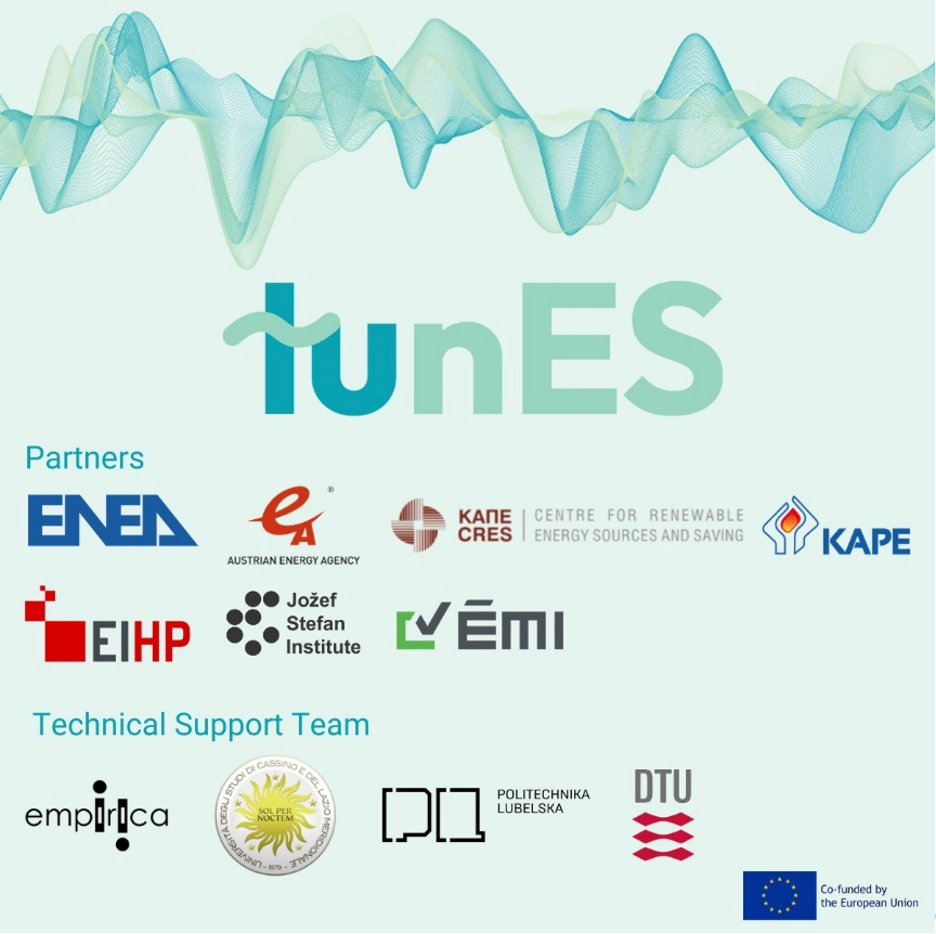Italian National Agency for New Technologies, Energy and Sustainable Economic Development

Energy: Efficiency, ENEA in the European project tunES for the buildings of the future
Developing new policies to make the implementation of the Energy Performance Certificate (EPC) of buildings more effective and defining an integration strategy with the new SRI (Smart Readiness Indicator) index, which rates the intelligence of buildings, is the objective of the European project tunES[1], funded by the European Commission[2], comprising seven national energy agencies from as many EU states[3] - including ENEA for Italy - and other partners, including the University of Cassino and Southern Lazio in Italy and the German company Empirica (coordinator).
Already in 2018, the European Union introduced the SRI index as a common optional system for Member States[4] with the aim of evaluating the "smart-readiness of buildings" in their capability to adapt their operation to the needs of the occupant and the network, as well as to improve energy efficiency and overall performance.
“A smart building is efficient, consumes less and uses intelligent management systems to automatically control and monitor building’s operations. It has solutions for thermal comfort control, infrastructures for self-consumption of locally produced energy, systems for monitoring consumption and above all, it interacts with the electric grid,” explained Biagio Di Pietra, head of the ENEA Integrated Solutions Laboratory for Energy Efficiency.
TunES is divided into five study areas ranging from the updating of databases and calculation tools for the indicators used in the APE to the possible harmonization of the APE and SRI. ENEA is among the leaders in the project for the management of databases and the development of the SRI index, thanks to the know-how acquired implementing the Information System in the APE (SIAPE)[5] and in the experience gained in the field of Electricity System Research.
“The tunES project, recently presented in Brussels during an event organized by ENEA, will be an important tool for sharing and disseminating good practices in Energy Certification of Buildings and the Smart Readiness Indicator, identifying the most appropriate policies also by involving sector stakeholders”, said Di Pietra. “We believe that the integration of the SRI into the APE certification can provide a fuller picture of buildings”, he concluded.
As part of the national Electric System Research program, ENEA has launched several activities on the topic and has produced, with the University of Cassino and Southern Lazio, a report to evaluate the smartness potential of existing buildings, applying the SRI index to multiple case studies.
The recent revision of the Energy Performance of Buildings Directive (EPBD) requires the European Commission to demand the application of the SRI for non-residential buildings with a nominal output of heating systems exceeding 290 kW by 30 June 2027.

Notes
[1] tunES, Tuning EPC and SRI instruments to deliver full potential
[2] Programma LIFE 2021-2024 https://ec.europa.eu/info/funding-tenders/opportunities/portal/screen/opportunities/topic-details/life-2022-cet-buildperform
[3] Austria, Croatia, Greece, Poland, Slovenia and Hungary, in addition to Italy
[4] DIRECTIVE (EU) 2018/844 OF THE EUROPEAN PARLIAMENT AND OF THE COUNCIL of 30 May 2018 amending Directive 2010/31/EU on the energy performance of buildings and Directive 2012/27/EU on energy efficiency.
[5] SIAPE is the national tool for collecting APEs for buildings and real estate units, established with the aim of providing an accurate picture of the status of the energy requalification of the national building stock.
